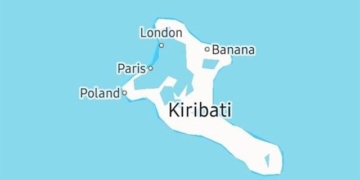When the oxygen supply to the brain decreases or is completely interrupted, damage can occur rapidly, leading to brain death.
The human brain is an incredibly complex and delicate organ, reliant on a continuous supply of oxygen from the blood. Without oxygen, brain cells, including neurons that transmit signals for thinking and feeling, begin to die. According to Dr. Danny Gonzalez, a vascular brain researcher and assistant professor at the Barrow Neurological Institute in Phoenix, Arizona, there is no clear answer to how long the human brain can survive in a state of oxygen deprivation.

The oxygen supply to the brain suddenly stops in cases of cardiac arrest. (Photo: Farrer Park Hospital).
The human brain requires more energy than any other organ in the body. Although it only accounts for 2% of an average adult’s body weight, the brain uses about 20% of the oxygen-rich blood pumped from the heart, according to a 2021 study published in the journal Intensive Care Medicine. This significant oxygen supply is essential for maintaining electrolyte balance, with charged minerals playing a key role in transmitting electrical impulses in the nervous system. Electrolyte imbalances disrupt the signaling capability of neurons, as cells rely on sodium and potassium flows across the membrane, controlled by “pumps” that can malfunction without sufficient oxygen. This leads to rapid accumulation of sodium and water, causing neurons to swell.
The exact time for the brain to incur irreversible damage or complete death due to lack of oxygen depends on several factors, including the extent and duration of the oxygen supply loss. This is because interruptions to the oxygen supply to the brain can be localized, such as in the case of a stroke or head injury, or systemic, such as in cardiac arrest, where the heart suddenly stops functioning.
A stroke does not cause brain cells to die immediately, but the longer the brain is deprived of oxygen, the more severe the damage, according to StatPearls. Within 5 minutes, low oxygen levels can cause coma, seizures, and neuron death, as reported by the National Institute of Neurological Disorders and Stroke (NINDS). However, patients can still recover brain function after a stroke if treated promptly.
“Complete lack of oxygen will cause brain cells to die within a few minutes,” according to Gonzalez. In cases of cardiac arrest, spontaneous electrical activity on the surface of the brain disappears within 10 to 30 seconds after blood flow is lost. Permanent brain damage can occur within 4 minutes from the cessation of blood flow. A large number of dead cells increases the risk of brain death, the complete and irreversible loss of brain function.
While brain damage from oxygen deprivation typically occurs within a few minutes, the exact rate at which damage appears can vary among individuals, depending on personal factors and risk factors such as blood pressure, cholesterol, and smoking. Poor cardiovascular health can lead to atherosclerosis, hardening and narrowing blood vessels, limiting blood flow to tissues and organs, including the brain.



















































